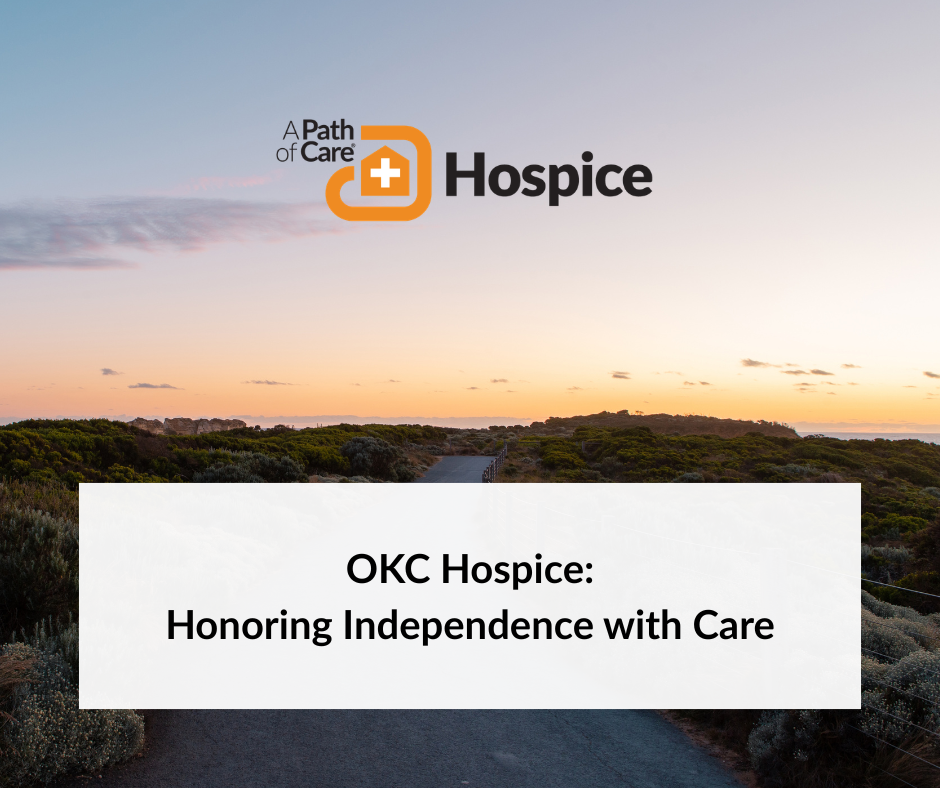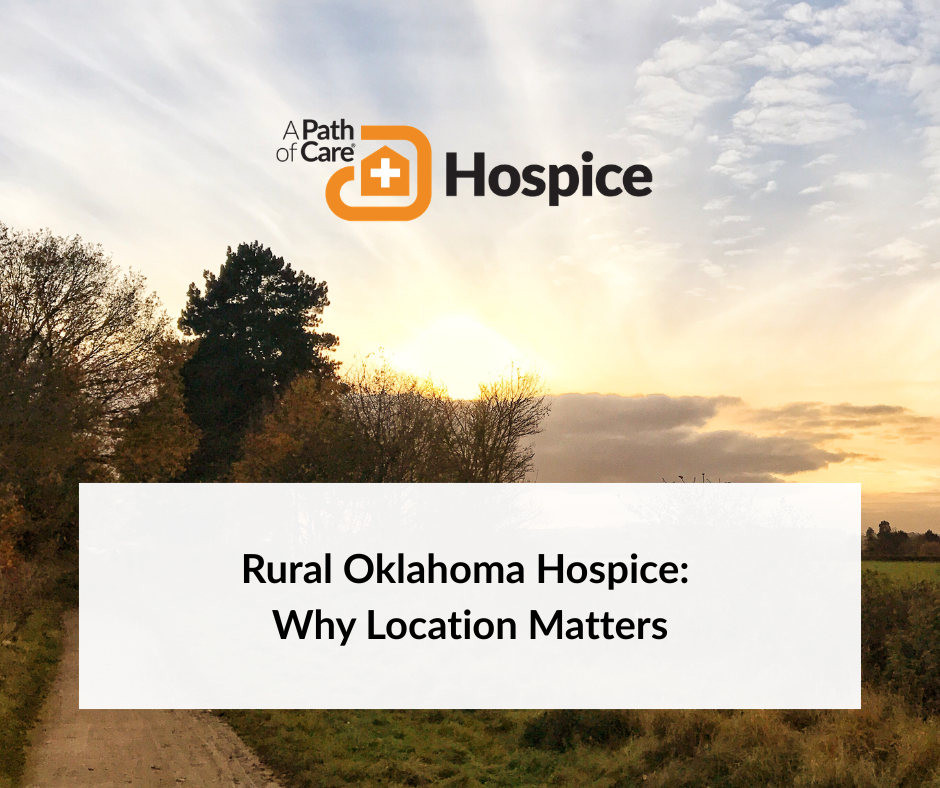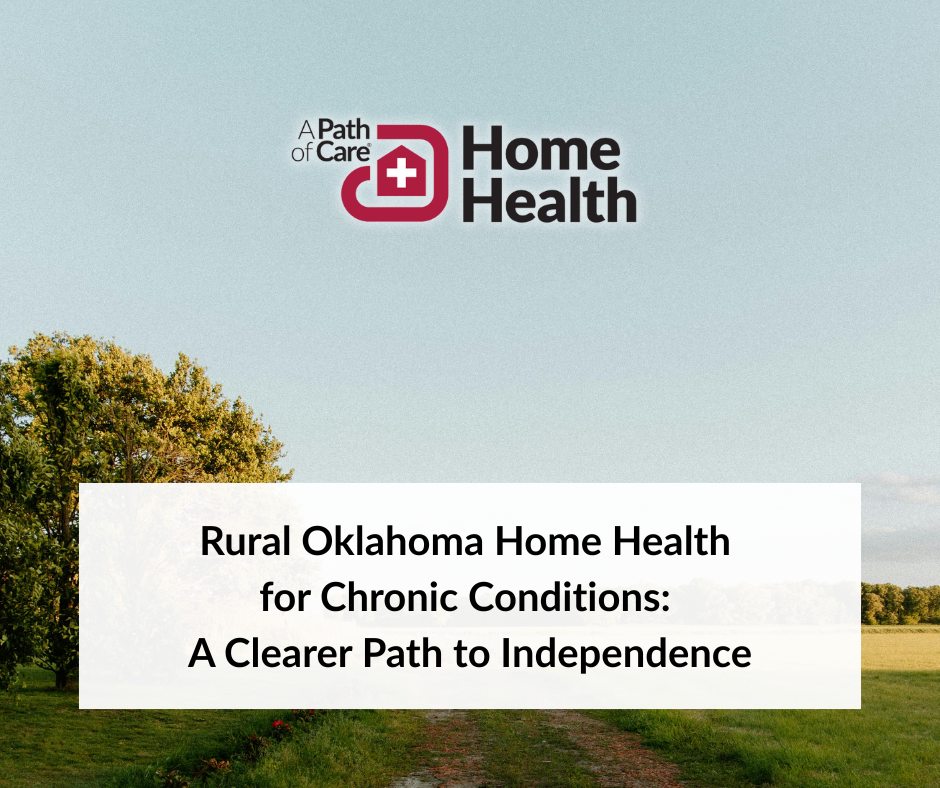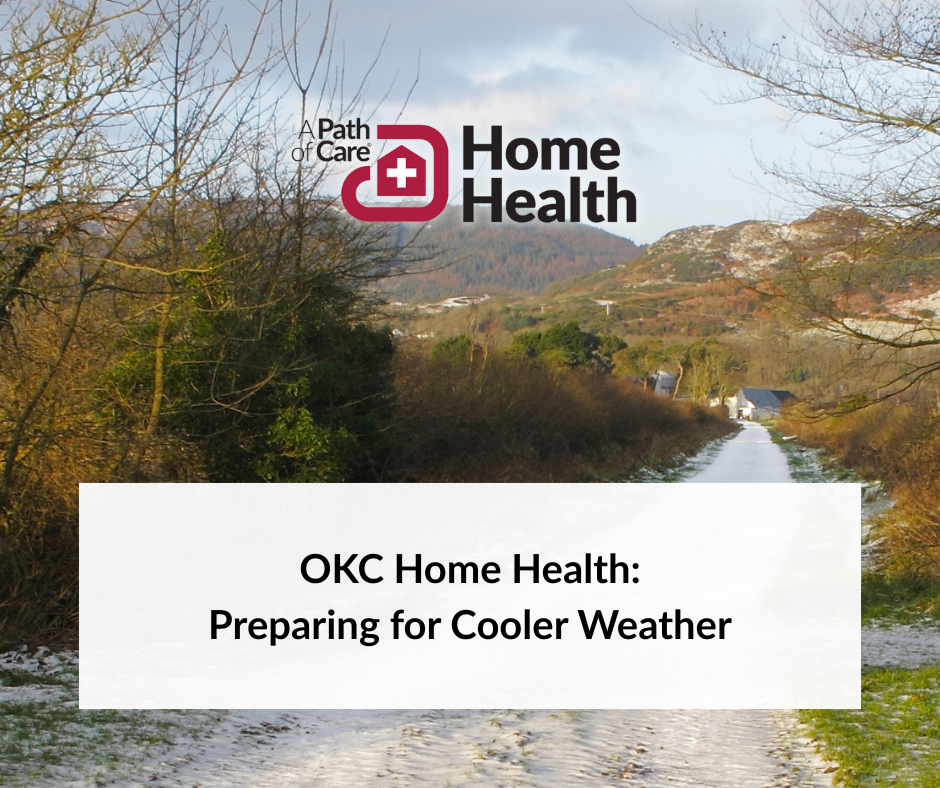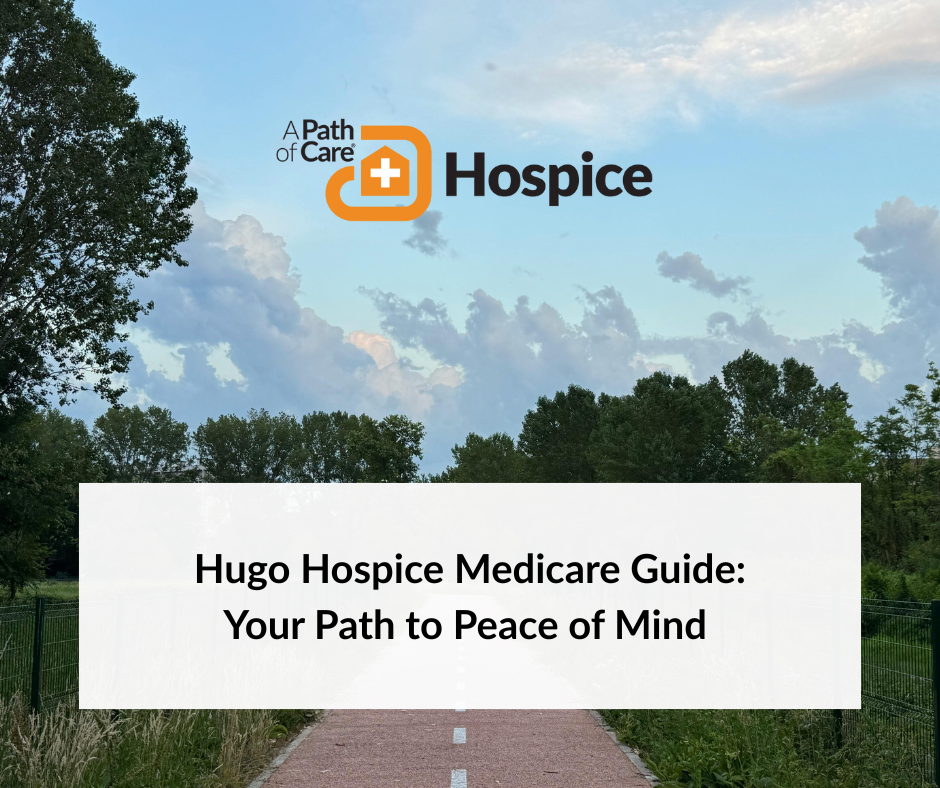Staying Cool, Staying Safe: Your Guide to Thriving Through OKC's Summer Heat
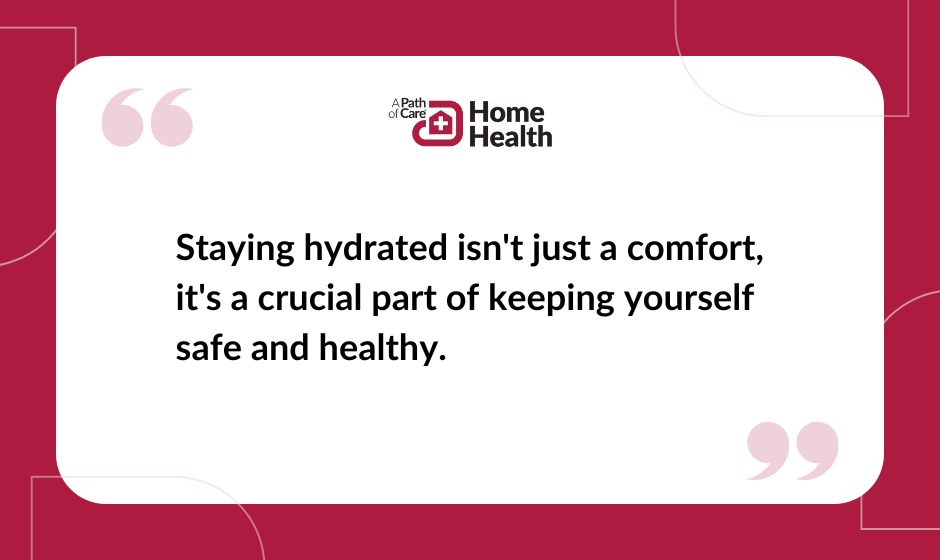
If you've ever lived through an Oklahoma City summer, you know how quickly the heat can take over your day. Suddenly, it's too hot for errands, your energy dips, and even sitting by a sunny window makes you sweat. Now, imagine navigating these high temperatures when you're homebound because of age, a serious illness, or limited mobility. Hydration means your body has enough water to work correctly. When you lose water through sweating, you need to replace it. Staying hydrated isn't just a comfort, it's a crucial part of keeping yourself safe and healthy.
At A Path of Care, we see the impact of the season firsthand. Our team helps Oklahoma City seniors and patients manage the risks of dehydration (when you don't have enough water). This is especially important when average summer highs soar past 90°F.
This guide delivers practical hydration strategies, helpful community resources, and key advice for preventing serious complications like falls.
Why Dehydration Is a Serious Concern in OKC Summers
It only takes a few hot days for dehydration to creep in, and seniors are especially at risk. Here's why:
- Aging bodies retain less water: As we age, our bodies naturally have less water and our sense of thirst often decreases. This makes seniors less likely to drink enough.
- Heat speeds up water loss: High temperatures mean you lose more water through sweat and even just breathing. If you don't replace these fluids, you can become dehydrated.
- Chronic conditions increase risk: Many health issues common among older adults, like heart or kidney problems, make it harder to maintain fluid balance in the heat.
Essential Hydration Tips: Three Ways for Oklahoma City Seniors to Beat the Heat
Staying hydrated doesn't have to be complicated, but it does call for a little planning. Here are three easy strategies home health patients can use:
1. Make Fluids a Routine, Not a Chore
Instead of relying on thirst signals, schedule fluid intake throughout your day. For example:
- Keep a water bottle or cup within arm's reach at all times
- Set a timer to remind you to take a drink every hour
- Choose low-sugar drinks like herbal tea, flavored water, or diluted juice for variety
2. Eat Water-Rich Foods
You don't have to drink your hydration, many foods can help, too. Try adding these hydrating foods to your diet:
- Fresh fruits: Watermelon, oranges, strawberries, and cantaloupe are packed with water
- Crisp veggies: Cucumbers, celery, tomatoes, and lettuce provide hydration and fiber
- Light broths or chilled soups for an easy, nourishing boost
3. Keep Your Environment Cool
Reducing exposure to heat is just as important as what you drink. Small actions can make a big difference:
- Draw blinds during peak sun hours to keep inside spaces cooler
- Use fans or air conditioning if possible
- Wear lightweight, breathable clothing and rest often
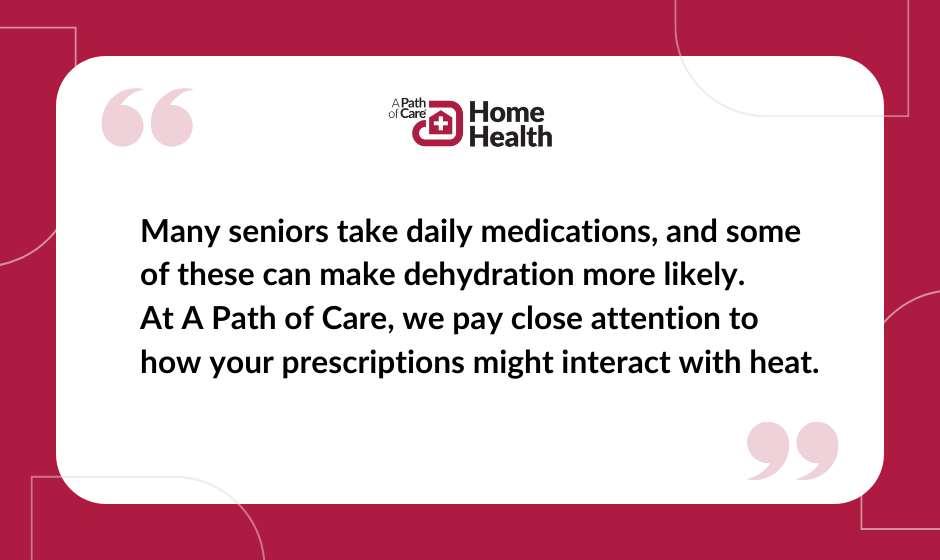
Understanding Medication and Heat: What You Need to Know
Many seniors take daily medications, and some of these can make dehydration more likely. At A Path of Care, we pay close attention to how your prescriptions might interact with heat. Diuretics (sometimes called "water pills"), blood pressure meds, and certain antidepressants can:
- Increase your need for fluids
- Reduce your body's ability to sweat or stay cool
- Cause side effects that intensify in hot weather
It's always wise to talk with your clinicians or our team about your full medication. We can help you adjust your hydration plan, monitor for any side effects, and quickly respond if you start to feel dizzy or weak.

Local Support: Free Hydration Checks at OKC Senior Centers
You're not alone in managing hydration during Oklahoma City's hot summers. Many local senior centers offer free hydration checks, educational events, and cool gathering spaces. These resources provide a break from the heat and connect you with people who can help track your hydration status. You can receive assistance with blood pressure checks, guidance on smart beverages, or simply have a cold drink in good company.
Consider adding a regular stop at your closest center or ask our team to help you find locations nearby. Staying connected helps you and your loved ones catch changes in your health before they become serious.
[[cta]]
How Home Health Clinicians Monitor Hydration and Fluid Balance
If you're receiving home health services, hydration is one of the foundational elements we assess at every visit. At A Path of Care, here's what we look for:
- Reviewing vital signs: We check your temperature, blood pressure, and heart rate for signs of dehydration.
- Observing symptoms: Dry mouth, low urine output, confusion, and sudden drops in energy can all indicate fluids are too low.
- Tracking daily intake: We help you or your family log what you drink and eat, offering tips for boosting hydration if needed.
- Regular weight checks: Sudden loss or gain can reflect fluid imbalances, which are especially important to watch in homebound patients.
Regular communication with your nurses and clinicians is the key to preventing complications before they arise.
Hydration and Falls: The Surprising Connection
Did you know that dehydration is linked to an increased risk of falls in seniors?
When you're even slightly dehydrated, you may feel dizzy, lightheaded, or confused—all factors that can make falls more likely.
Good hydration promotes strong muscles, steady blood pressure, and clearer thinking.
At A Path of Care, falls prevention is one of our core home health goals. We help you build routines that protect your independence, and staying on top of your hydration is a vital piece of that puzzle.
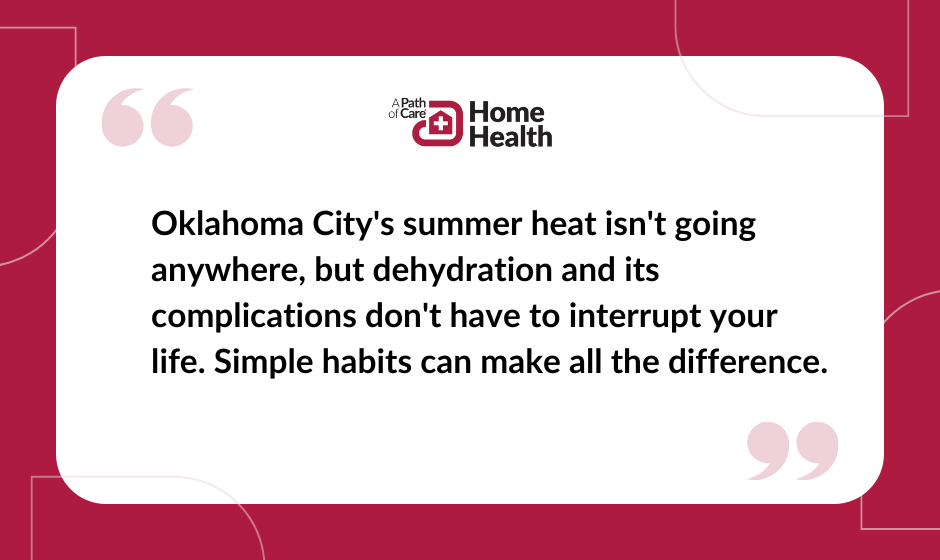
Staying Safe Starts With a Sip
Oklahoma City's summer heat isn't going anywhere, but dehydration and its complications don't have to interrupt your life. Simple habits can make all the difference.
If you or a loved one are looking for dedicated support this summer, or you have questions about home health and hydration, contact us today. We're here to help you stay safe, comfortable, and connected—one cool sip at a time.


